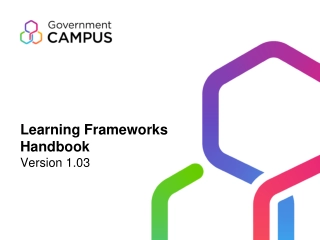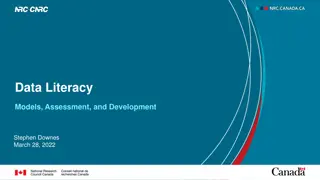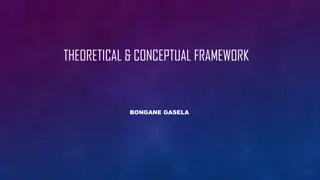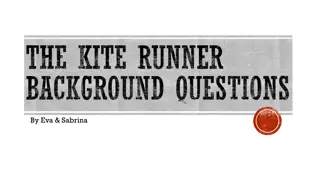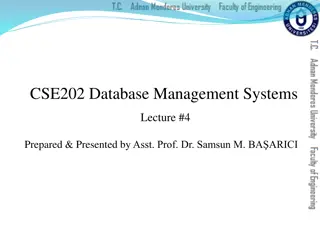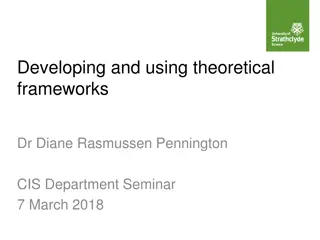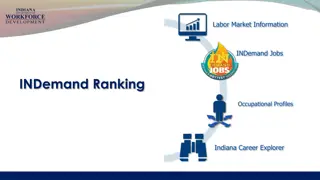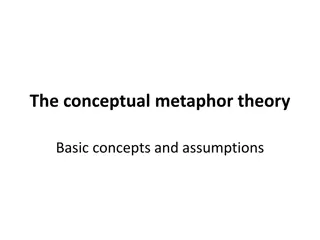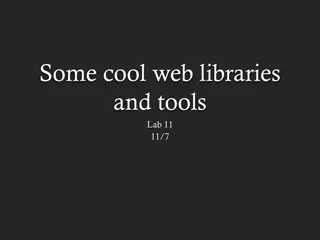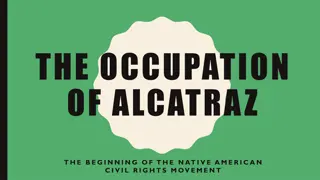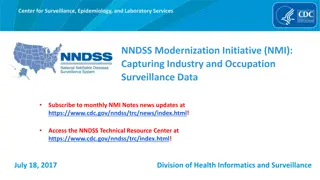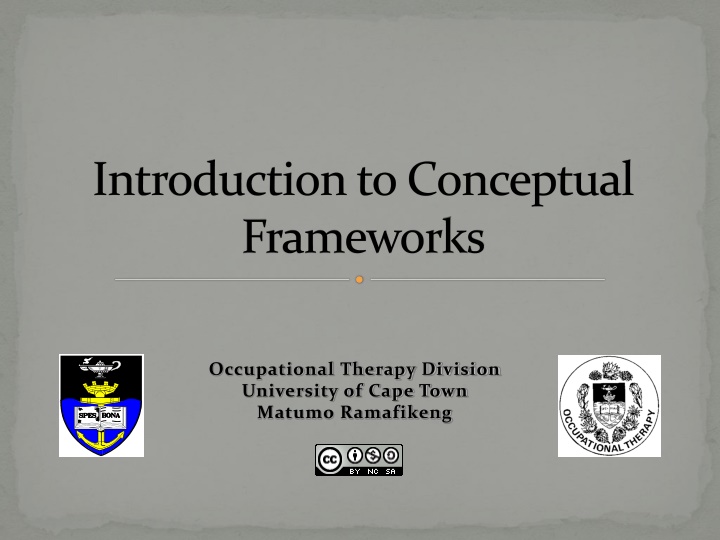
Conceptual Frameworks in Occupational Therapy: Key Theorists, Assumptions, and Principles
Explore the importance of conceptual frameworks in Occupational Therapy, focusing on key theorists, assumptions about humans, ideas on function-dysfunction continuum, principles, and their application in client care. Discover how these frameworks influence OT approaches, change modalities, and environment structuring.
Download Presentation

Please find below an Image/Link to download the presentation.
The content on the website is provided AS IS for your information and personal use only. It may not be sold, licensed, or shared on other websites without obtaining consent from the author. If you encounter any issues during the download, it is possible that the publisher has removed the file from their server.
You are allowed to download the files provided on this website for personal or commercial use, subject to the condition that they are used lawfully. All files are the property of their respective owners.
The content on the website is provided AS IS for your information and personal use only. It may not be sold, licensed, or shared on other websites without obtaining consent from the author.
E N D
Presentation Transcript
Introduction to Conceptual Frameworks Occupational Therapy Division University of Cape Town Matumo Ramafikeng
Course Overview Self-studies, lectures, assignment during practice learning Relevance and importance in terms of Occupational Therapy Practice
Course Structure Self-study reading and group tasks Lectures Assignment Paper cases
Conceptual Frameworks Integrating second and third year work developing your theoretical repertoire 2nd year- generic conceptual frameworks 3rd year- occupation-focused conceptual frameworks
Recap of related terminology Theory Concept Principle PDF posted on Learning Management System: definitions and descriptions of learning constructs
Terminology Universal definitions are unlikely The perspective of the author Different meanings, for different people, in different contexts
Functions of Conceptual Frameworks Descriptive: can be used to describe a phenomenon because it provides operational definitions of the phenomenon, it describes relevant variables and explains conditions under which variables vary Delimiting: like a pair of glasses can filter in and out certain information which helps to organise information into units of meaning
Functions of Conceptual Frameworks Generative: can be used to test hypotheses and generate new ideas Integrative: allows the systematic bringing together of theoretical constructs and observable data into a consistent, meaningful, unified whole
Understanding Conceptual Frameworks Who are its main theorists? What are their key concepts and assumptions about humans? What are the ideas about function-dysfunction continuum? What are its postulates about change? What principles may be derived from it? How do these principles inform how the OT approaches clients, selects change modalities and structures the environment? What specialized techniques arise from it and how do OT s use them?
References Cole, M. B. & Tufano, R. 2008. Applied Theories in Occupational Therapy : a Practical Approach. New Jersey Thorofare : SLACK. Duncan, E.A.S. 2006. An introduction to conceptual models of practice and frames of reference. In Duncan, E.A.S. (ed). 2006. Foundations for practice in occupational Therapy. 4th Edition. Elsevier Limited: London.
This work is licensed under the Creative Commons Attribution-Non commercial- Share Alike 2.5 South Africa License. To view a copy of this license, visit http://creativecommons.org/licenses/by- sa/2.5/za/

